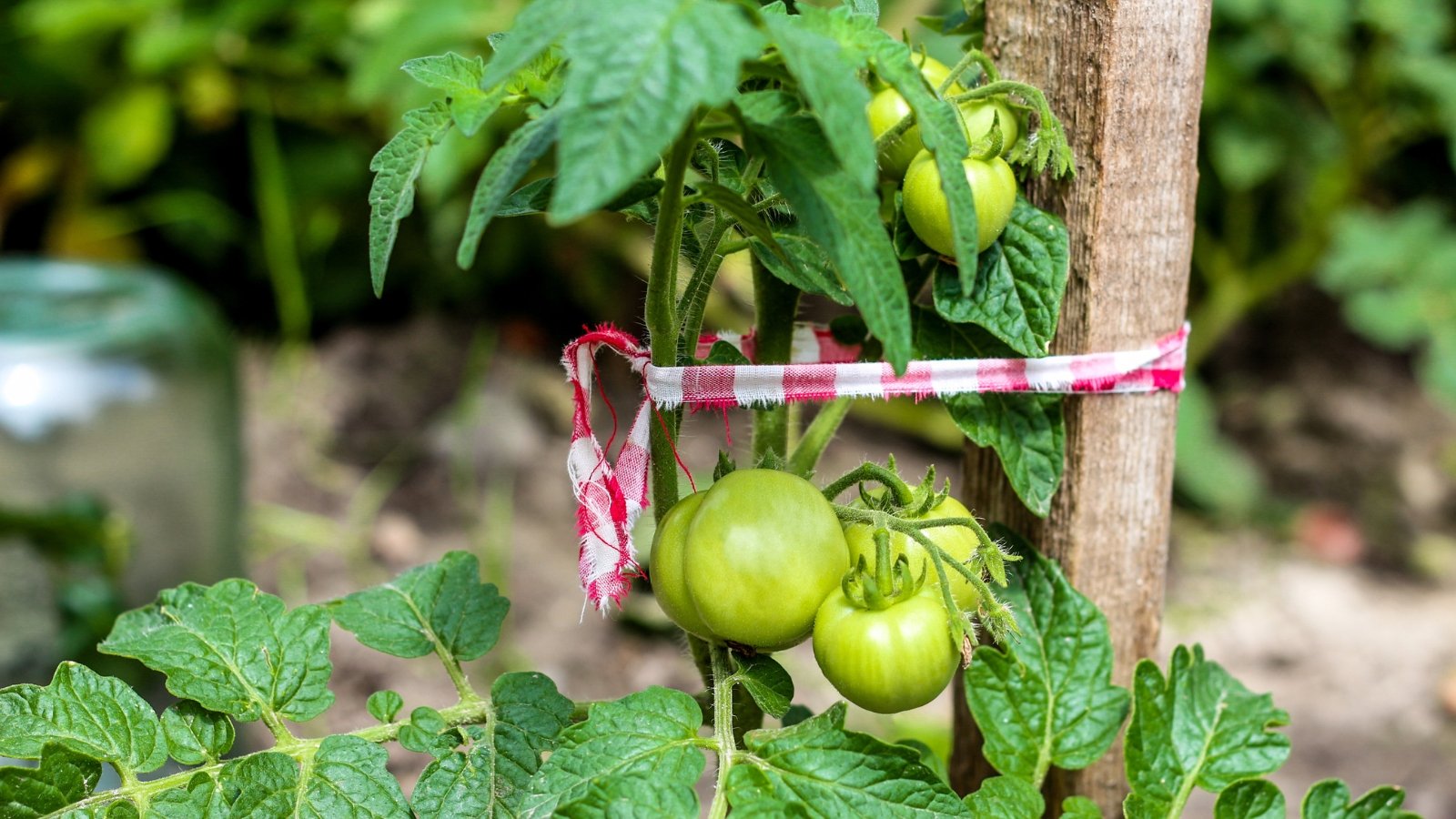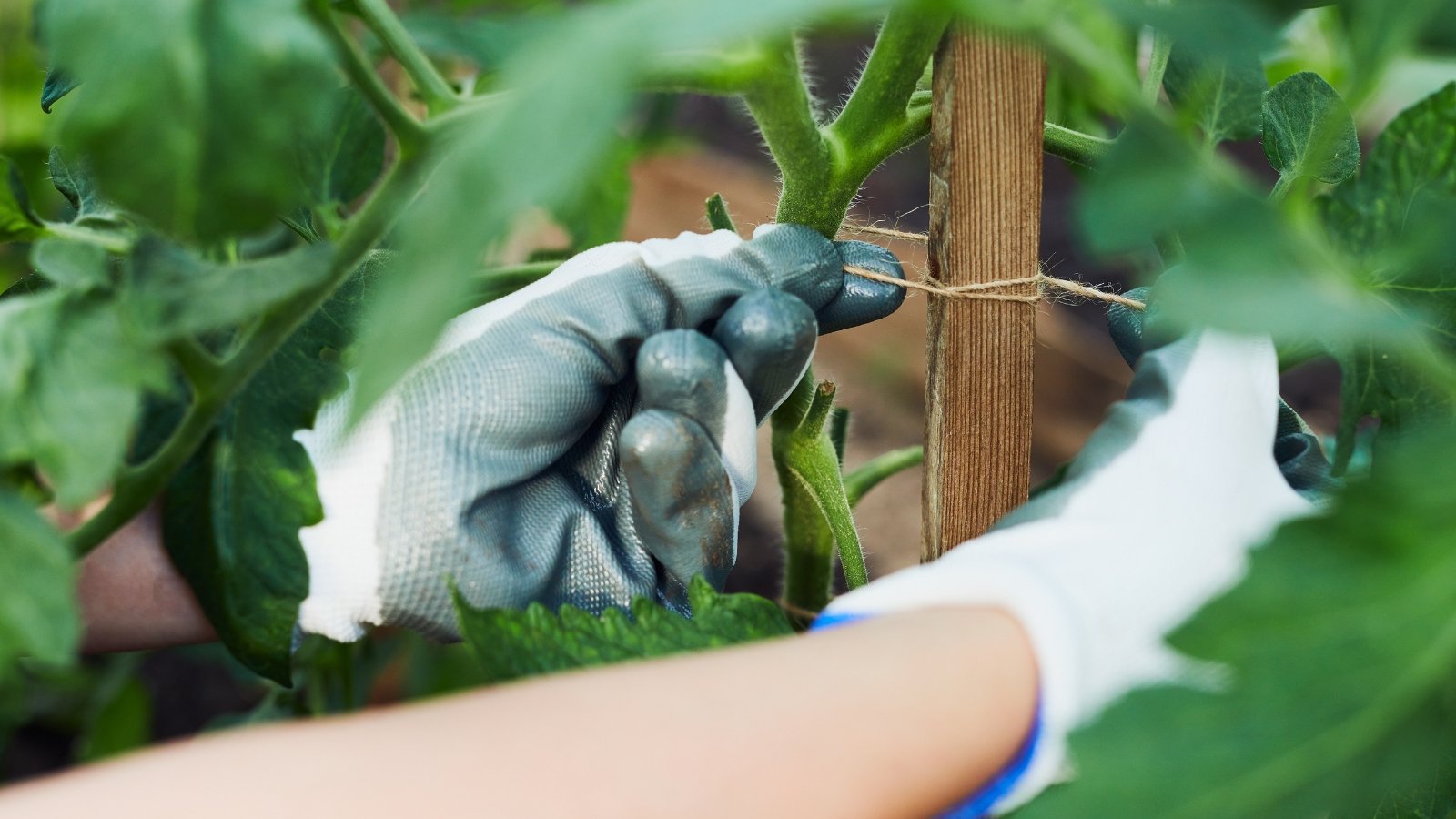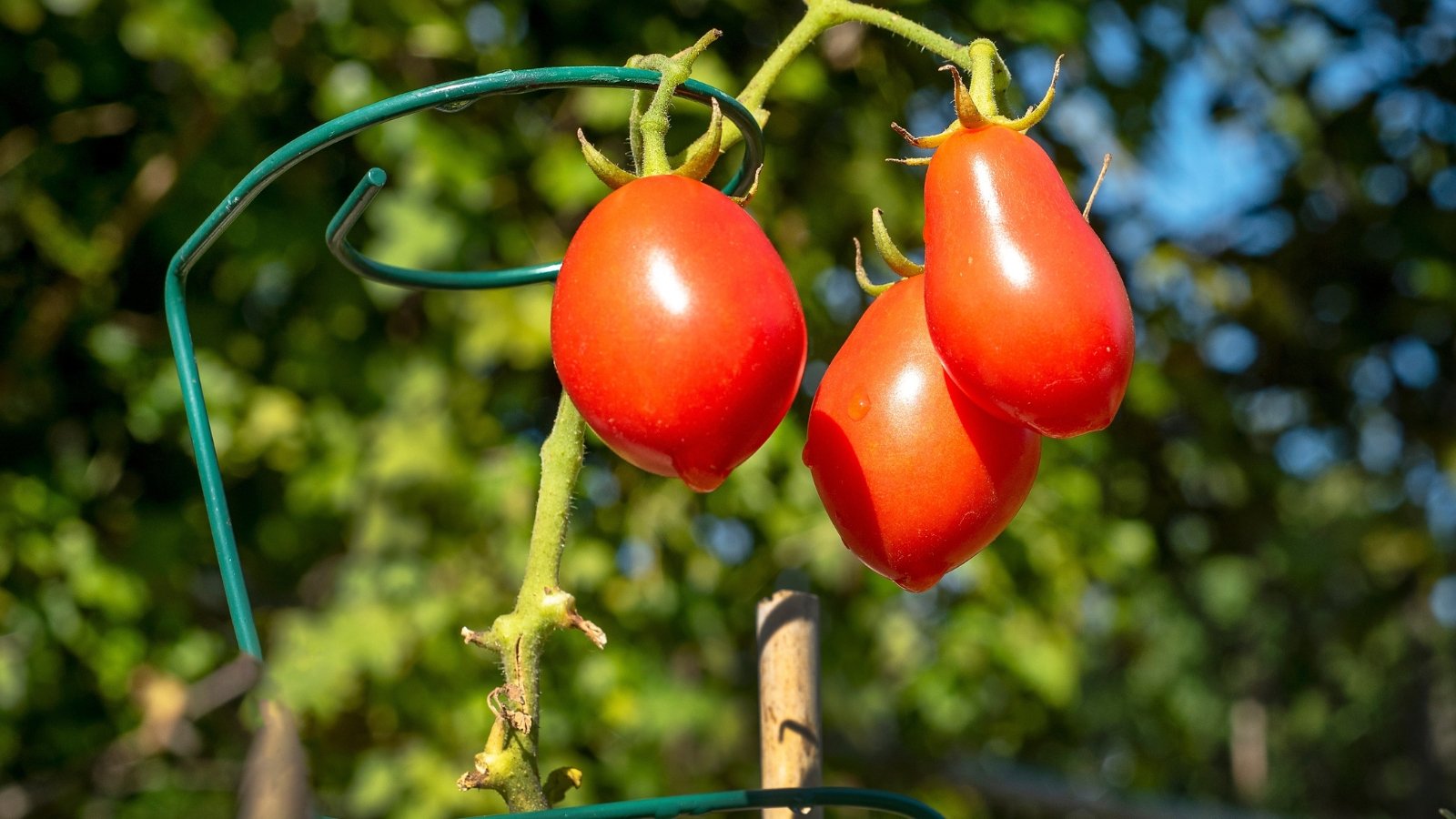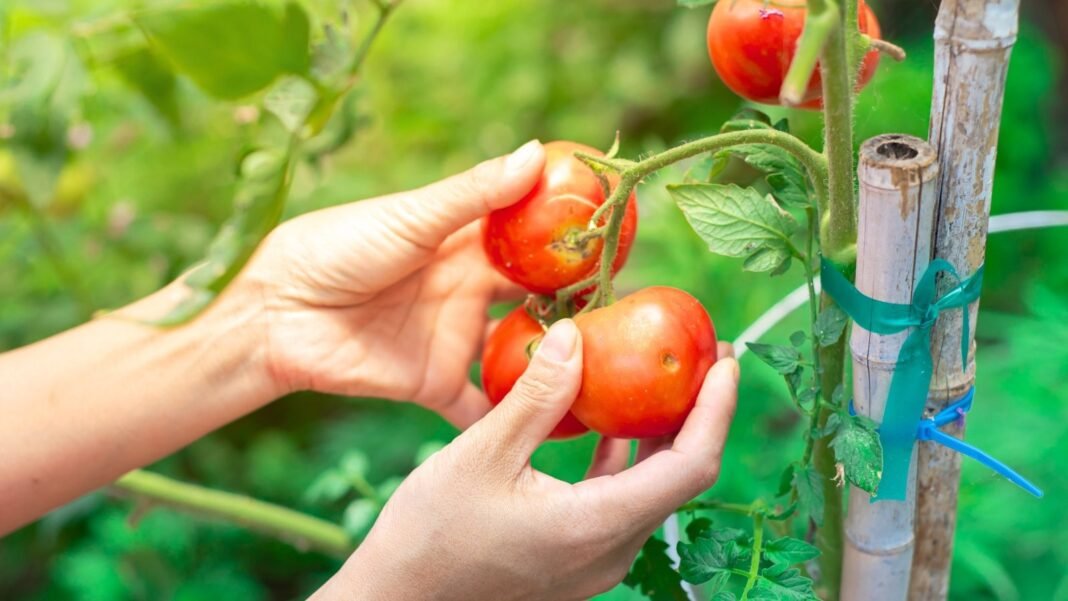Everybody assumes it’s straightforward to stake tomatoes. Hammer in a stake, tie up the plant, and also you’re executed. And I’m not saying it’s not straightforward, however there are additionally just a few methods it will possibly go incorrect.
In the event you encounter leaning crops, damaged stems, and toppled helps once you’re rising tomatoes, you’ll have made one in all these tomato staking errors. They aren’t the top of the world, however they’re good to keep away from if you wish to maximize your harvest.
By the point you discover your tomato leaning or getting floppy and calling out for help, it’s too late to stake. Not unimaginable, however you danger damaging the already in depth root system by driving stakes into the bottom now when the crops are already established.
Younger tomato crops look deceptively sturdy after they’re small. That little 12-inch seedling may not appear to be it wants help, however don’t inform your self you’ll get to it subsequent week. Tomatoes can develop surprisingly quickly, particularly as soon as heat climate hits constantly.
The perfect time to stake is at planting time, or no less than throughout the first week of transplanting. This allows you to place stakes with out damaging established root programs. It additionally means the tomato grows up with its help system as a substitute of getting to adapt to at least one later.
As soon as every little thing’s already set in place, adjustments trigger disruption. You find yourself having to power stems into unnatural positions or danger breaking branches and roots to supply the correct help. As an alternative, stake early.
Selecting the Fallacious Dimension Helps
Undersized stakes may be virtually as unhealthy as no stakes in any respect. That is sometimes solely an issue with indeterminate sorts, fairly than determinate tomatoes, nevertheless it’s a typical tomato staking mistake however.
A 4-foot stake would possibly look satisfactory when your tomato is knee-high, nevertheless it turns into ineffective as soon as the plant reaches full measurement. Indeterminate varieties can simply hit 8 ft tall underneath good circumstances, whereas determinate sorts attain 4-5 ft.
Your help must be tall sufficient to satisfy the tomato’s full peak, plus it must go deep sufficient into the bottom to remain steady. A very good rule of thumb is to make use of stakes which are no less than 6 ft above floor, with one other 2 ft buried for stability.
Don’t overlook about wind. Even a well-supported tomato can wrestle in sturdy winds, placing monumental stress on stakes, too. Select the correct measurement and bury them deep sufficient to deal with no matter summer time throws at them.
Utilizing the Fallacious Ties

The fabric you utilize to tie stems to stakes makes an enormous distinction in well being. This was one in all my first tomato staking errors, and it shortly price me just a few branches.
Stiff string, wire, and different laborious supplies minimize into stems as they develop. When you’ve tied and forgotten about them, branches develop upward and outward and don’t have room to increase due to the rigid ties. This creates wounds that invite illness and weaken the plant structurally.
Delicate ties are important when staking tomatoes. Material strips or specialised ties transfer with the stems and distribute strain over a wider space. They increase as stems thicken, stopping the harm that occurs with inflexible ties.
Previous t-shirts minimize into strips work nice for plant ties in the event you don’t have the rest available. They’re delicate, stretchy, and free. However plant ties are well worth the funding in the event you’re rising loads of tomatoes (and don’t wish to minimize up all of your garments).
In the end, wire twist ties could also be handy, however they’re harmful. They’re straightforward to overtighten, and the wire can minimize via stems as stems sway within the wind. The plastic coating doesn’t assist a lot, because it’s nonetheless a inflexible materials that doesn’t give with motion.
Tying Too Tightly

Even with the correct ties, many gardeners make the tomato staking mistake of cinching them too tightly round stems. You wish to present stable help, however this truly weakens stems and might trigger severe harm over time fairly than making them extra sturdy.
Tight ties limit the circulation of vitamins and water via the stem and might minimize into the tissue. You’ll possible see decreased progress above the tie level. Leaves could yellow or wilt even when soil moisture is satisfactory.
Tomatoes want some freedom to maneuver naturally. Stems that may’t flex with wind and climate develop into brittle and extra prone to break. A little bit motion truly strengthens stems by encouraging them to develop supportive tissue.
When tying stems to helps, make a free loop across the stem, then cross the tie and loop it across the stake. This creates a buffer between plant and stake whereas offering stable help. The stem by no means touches the stake immediately.
Test ties often all through the season. What feels free early on would possibly minimize into the stem as your tomato grows. Loosen or change ties to cease this tomato staking mistake from inflicting actual harm.
Not Coaching Stems

Many gardeners stick in a stake and assume the tomato will determine tips on how to use it, however they want steerage to develop good construction.
Indeterminate tomatoes wish to sprawl in all instructions. With out coaching, they develop a number of competing leaders that make the plant top-heavy and troublesome to help. Common pruning and coaching preserve progress targeted on a single most important stem that’s simpler to stake successfully.
Tie tomatoes to stakes at common intervals as they develop. Don’t wait till the stem is drooping. Add new ties each 10 inches of progress, or everytime you see stems beginning to lean away from the help.
Decrease branches usually want particular person consideration, too. Heavy fruits can pull branches down even when the primary stem is correctly supported. Use further ties or small stakes for closely loaded branches to forestall them from breaking underneath the load.
The distinction between correctly staked tomatoes and poorly supported ones turns into apparent because the season progresses. Nicely-supported tomatoes keep upright, develop higher air circulation, and produce extra accessible fruit. They’re additionally much less vulnerable to illness and simpler to keep up all through the season. Take the time to do it proper from the start, and also you’ll save your self complications in a while.
